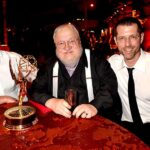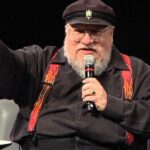From the buildup to the filming to the aftermath, the Red Wedding was just as emotional for the cast and crew as it was for Game of Thrones fans.
The Red Wedding is probably the most iconic sequence to come out of Game of Thrones. It has some competition — Ned Stark’s execution, Cersei’s Walk of Shame, etc — but there’s no denying its power, or that it really put Game of Thrones on the map. The audacity to kill off some of your main characters right when a series is approaching middle age…as showrunner Dan Weiss told James Hibberd for his book, Fire Cannot Kill a Dragon, “The Red Wedding was the thing we always told ourselves that if we got to that moment, and if we did it right, did it justice, then [the show would] be in a pretty good place. The energy that it injected into the story would be enough to get us through to the end of the show.”
That book is full of fascinating remembrances of the buildup, shooting and aftermath of this legendary TV event. To start, people who had read George R.R. Martin’s books knew it was coming, and wouldn’t stop pointing that out to the actors. “I read [the books] season by season,” recalled Richard Madden, who played Robb Stark. “I didn’t want to preempt where Robb is going. But a thousand people spoiled it for me before I had a chance to pick up the third book. I also made the fatal flaw of googling. So that reinforced what people were hinting, saying something terrible was going to happen and giggling.”
Michelle Fairley, who played Robb’s mother Catelyn, also knew to assume crash positions. “It’s something that anyone who’s read the books will talk about, so people took great delight in knowing,” she said. “There’s something so incredibly dramatic and brutal about the Red Wedding, the shock of it. I met somebody who read it on the plane and they were so heartbroken they left the book on the plane. For an actor to be given that part to play, you want to grab it and go straight into it.”
All of this added up to a lot of anticipation on set. “When it came time to shoot it there was so much pressure,” Weiss remembered. “We had gotten to it, which was great, but given where the show was at the time [in terms of its budget], it was a very complex thing to shoot and get right.”
The day of
Generally, movies and TV shows shoot scenes out of order, but director David Nutter got to film the Red Wedding mostly in sequence over the course of about a week, which had to pull the tension even tighter. “I made sure that the most powerful points were near the end of the shoot,” he remembered. “These are beloved characters that everybody loved being around. You want to build up the emotional journey of the sequence.”
And what was the most powerful point? Catelyn watching Roose Bolton (Michael McElhatton) kill her son, letting out a scream of pain, killing Walder Frey’s wife, and then getting killed herself. “We organized it so Catelyn losing it at the end was the last scene we’d shoot,” Nutter remembered. “And we talked about how long she would stand there before the guy comes up and puts a knife in her throat…The knife cut wasn’t exactly the right positioning, it wasn’t the right inch, but it looked so good.”
Don’t remind me.
Fairley sounds like she had a very clear idea of how to get in character for the occasion. “I’d lost all my children and my husband, so what else did I have to live for?” she asked. “She came from a very honorable family. Her whole life has been about honor and doing the right thing. In some way she’d been held back by her sense of honor and duty. She constantly questioned her motives and actions. This was one where she didn’t. ‘I’m not questioning this, I’m just doing it.’ I think that’s incredibly liberating. Then she was standing there after like there was nothing left for her. She was dead already. She wanted it. She couldn’t go on.”
It sounds like a lot of the actors didn’t have to try particularly hard to get into character, since the scene itself was already so grim. Oona Chaplin, who played Robb’s wife Talisa, kept “crying while I was dead.” Even the crew members started to weep, which Nutter took as a good sign. “I remember hearing people crying, and it was the hair and makeup people,” he said. “I’m a big believer that if a scene is not emotionally driving you as you’re making it, how can you expect the audience to feel the same? I thought, ‘If we can make ourselves feel something, then this will translate.’”
Although there was room for a few more light-hearted moments. For instance, some fans may already know that one of the drummers at the Red Wedding was played by Will Champion, the drummer for Coldplay. Michael McElhatton didn’t know that, and started making idle conversation with him in the makeup trailer. “Then I asked, ‘Are you in a band?’ He said, ‘Yeah, I’m in a band.’ ‘You having any luck?’ ‘Yeah, we’re doing okay.’ You know the punch line for this. I asked what his band was called. He said, ‘We’re called Coldplay,’ and I felt like such a d**k.”
But McElhatton made up for it with his performance, including that great moment where he gives Catelyn a little knowing smirk as she figures out he’s in on the plan to kill her and the rest of the Stark army. “David had to drag that look out of me,” McElhatton said. “Because it’s quite theatrical, that half-smile glare down at her. David was like, ‘I don’t want subtlety, I want melodrama.’”
The aftermath
“We were mentally exhausted,” Madden remembered. “I cried my eyes out, completely, as did a lot of the crew and other actors. It was very emotional.”
It sounds like Fairley was affected more than most, which is understandable since Catelyn was the focal point of all the despair. “We tried to call Michelle afterward,” Weiss remembered. “She wasn’t answering. A week later she wrote an email saying, ‘Sorry, I haven’t been able to talk to anybody about the show for the past week because I’ve been so shattered.’”
Fairley confirmed that this was the case. “Dan had left me a voicemail, and I did try to ring him back. But by the end of the day I was a walking shell.”
And that’s the Red Wedding, folks! It was a…success? “It’s weird to say, ‘Oh, it went great,’” said showrunner David Benioff. “Because we’re not just killing characters, we’re losing these actors who have been with us since the beginning. It’s hard, because you love the actors.”
And this is just one of many takeaways from Hibberd’s book:
To stay up to date on everything fantasy, science fiction, and WiC, follow our all-encompassing Facebook page and sign up for our exclusive newsletter.
Get HBO, Starz, Showtime and MORE for FREE with a no-risk, 7-day free trial of Amazon Channels
h/t Looper



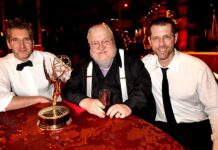
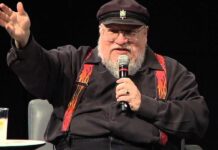
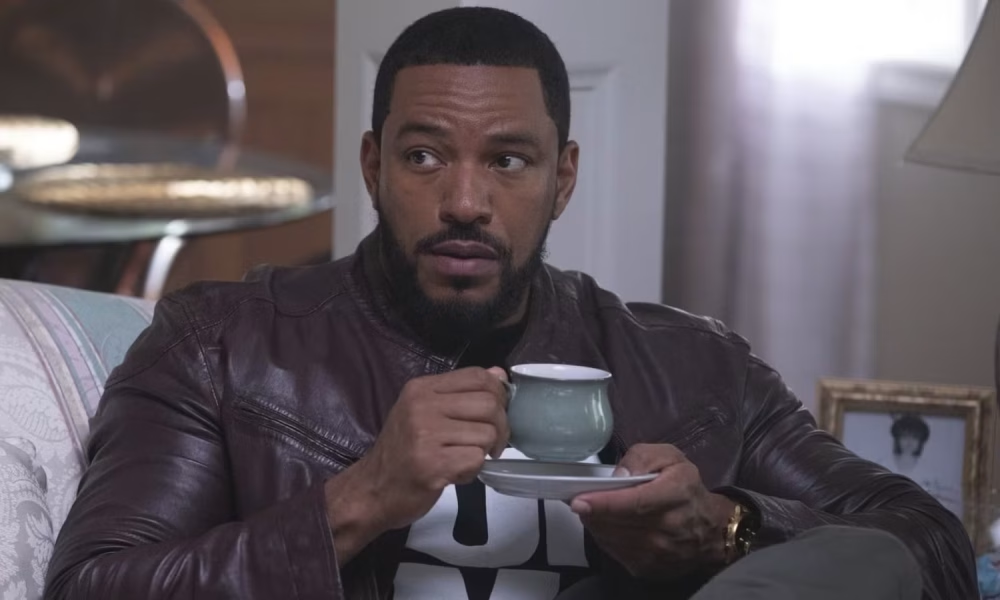














![[Book Review] The Blade Itself (The First Law Trilogy) by Joe Abercrombie](https://bendthekneegot.com/wp-content/uploads/2018/01/1516047103_maxresdefault-218x150.jpg)








